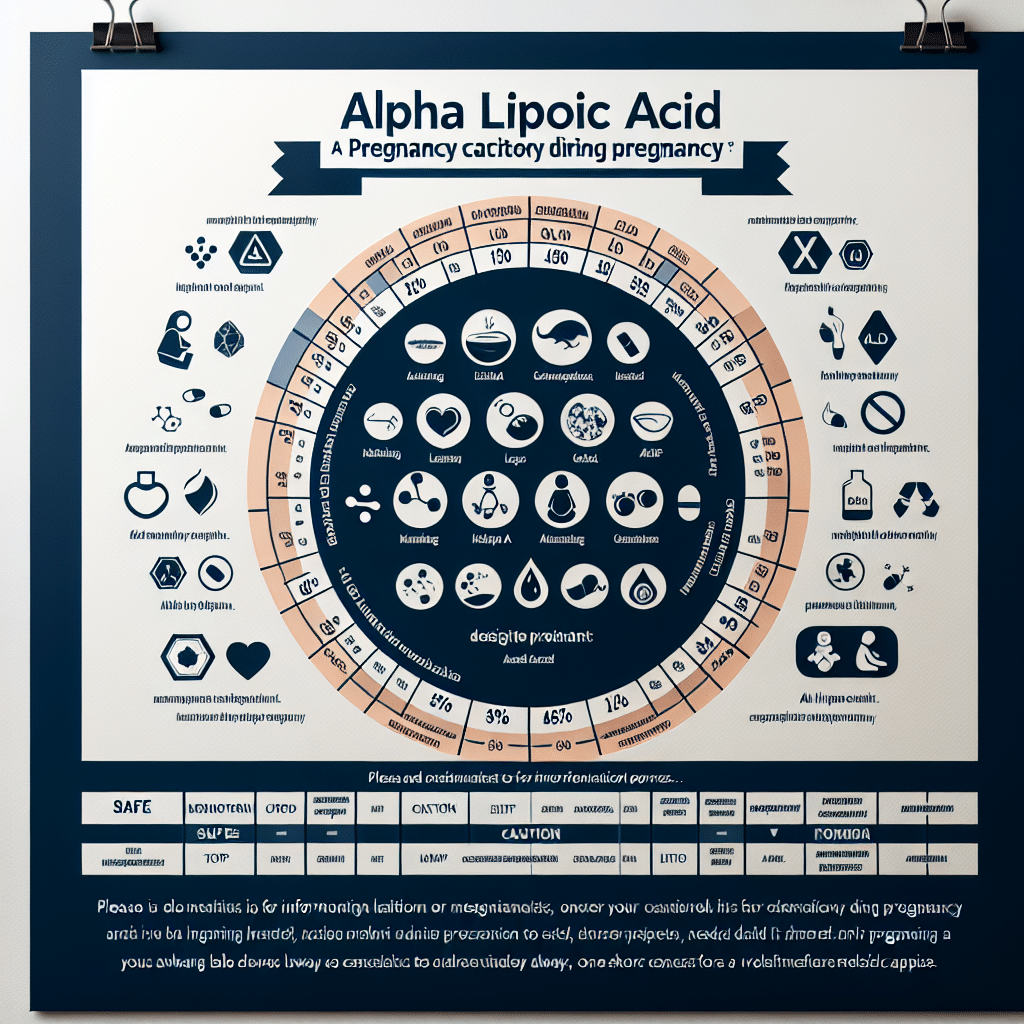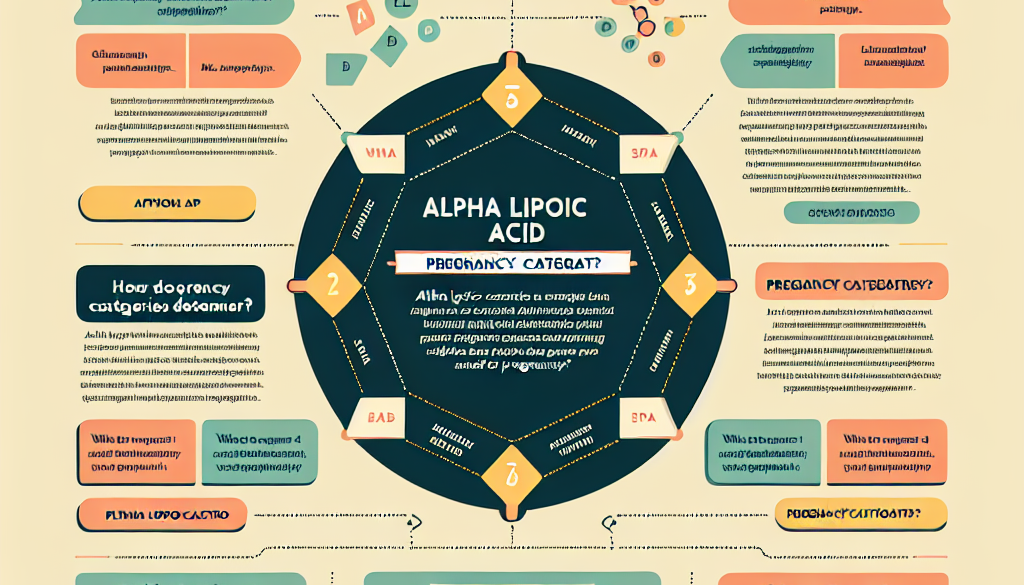Alpha Lipoic Acid Pregnancy Category Explained
-
Table of Contents
- Alpha Lipoic Acid in Pregnancy: Safety and Category Insights
- Understanding Alpha Lipoic Acid
- Alpha Lipoic Acid and Pregnancy
- Pregnancy Categories Explained
- Alpha Lipoic Acid’s Historical Pregnancy Category
- Risks and Considerations
- Current Recommendations for ALA Use in Pregnancy
- Case Studies and Research
- Statistics on Supplement Use During Pregnancy
- Conclusion: Weighing the Benefits Against the Risks
- Explore ETchem’s Protein Products
Alpha Lipoic Acid in Pregnancy: Safety and Category Insights

Alpha Lipoic Acid (ALA) is a naturally occurring compound that is vital for cellular energy production and has potent antioxidant properties. It is used for various health benefits, including managing diabetes, promoting weight loss, and improving nerve function. However, when it comes to pregnancy, the safety and implications of ALA supplementation are a significant concern for expectant mothers and healthcare providers alike.
Understanding Alpha Lipoic Acid
Before delving into the specifics of ALA’s pregnancy category, it is essential to understand what ALA is and its role in the body. Alpha Lipoic Acid is a fatty acid found in every cell of the body. It helps enzymes turn nutrients into energy and also has antioxidant effects, combating oxidative stress and inflammation.
Alpha Lipoic Acid and Pregnancy
Pregnancy is a delicate period where the safety of both the mother and the developing fetus is paramount. Any supplement or medication used during this time must be carefully evaluated for its safety profile and categorized accordingly.
Pregnancy Categories Explained
The U.S. Food and Drug Administration (FDA) previously classified drugs and supplements into categories (A, B, C, D, and X) based on their potential risks to the fetus when taken during pregnancy. However, this system has been replaced by the Pregnancy and Lactation Labeling Rule (PLLR), which requires more detailed safety information. Despite this change, understanding the old categories can still provide a historical context for drug safety during pregnancy.
Alpha Lipoic Acid’s Historical Pregnancy Category
Alpha Lipoic Acid was not officially classified by the FDA before the PLLR came into effect. However, due to limited research on its use during pregnancy, it would likely have fallen into Category C, which indicates that animal reproduction studies have shown an adverse effect on the fetus, and there are no adequate and well-controlled studies in humans, but potential benefits may warrant use of the drug in pregnant women despite potential risks.
Risks and Considerations
When considering ALA supplementation during pregnancy, several factors must be taken into account:
- Limited Research: There is a scarcity of studies on the effects of ALA on pregnant women and their fetuses, making it difficult to ascertain its safety profile.
- Potential Benefits: While ALA has potential health benefits, whether these translate to positive outcomes during pregnancy is not well-documented.
- Risk of Side Effects: Like any supplement, ALA can cause side effects, which may be more pronounced during pregnancy.
Current Recommendations for ALA Use in Pregnancy
Given the lack of conclusive evidence, healthcare providers generally recommend that pregnant women avoid unnecessary supplements, including ALA, unless prescribed by a doctor for a specific health condition. If ALA is deemed necessary, it should be used under strict medical supervision.
Case Studies and Research
While comprehensive human studies are lacking, some animal studies have suggested that ALA may have both beneficial and detrimental effects during pregnancy. For example, a study on pregnant rats indicated that ALA supplementation could reduce the risk of fetal growth restriction. However, other studies have shown potential risks, such as hypoglycemia in offspring, highlighting the need for more research.
Statistics on Supplement Use During Pregnancy
Statistics show that a significant number of pregnant women use dietary supplements. According to a survey by the American College of Obstetricians and Gynecologists, over 90% of women reported taking at least one supplement during pregnancy. However, this does not necessarily reflect the use of ALA, as prenatal vitamins are the most commonly used supplements.
Conclusion: Weighing the Benefits Against the Risks
In conclusion, while Alpha Lipoic Acid has potential health benefits, its use during pregnancy remains controversial due to insufficient research. Pregnant women should consult their healthcare providers before taking ALA or any other supplements. The key takeaways are to prioritize safety, rely on medical advice, and consider the potential risks and benefits of ALA supplementation during pregnancy.
Explore ETchem’s Protein Products
For those interested in high-quality protein supplements, ETchem offers a range of products that cater to various needs. While ALA is not a protein, understanding the importance of proper nutrition during pregnancy can lead one to explore other safe and beneficial protein options. ETchem’s protein products, including their diverse collagen offerings, are manufactured with the highest quality standards and can be a valuable addition to one’s nutritional regimen.
About ETChem:
ETChem, a reputable Chinese Collagen factory manufacturer and supplier, is renowned for producing, stocking, exporting, and delivering the highest quality collagens. They include marine collagen, fish collagen, bovine collagen, chicken collagen, type I collagen, type II collagen and type III collagen etc. Their offerings, characterized by a neutral taste, instant solubility attributes, cater to a diverse range of industries. They serve nutraceutical, pharmaceutical, cosmeceutical, veterinary, as well as food and beverage finished product distributors, traders, and manufacturers across Europe, USA, Canada, Australia, Thailand, Japan, Korea, Brazil, and Chile, among others.
ETChem specialization includes exporting and delivering tailor-made collagen powder and finished collagen nutritional supplements. Their extensive product range covers sectors like Food and Beverage, Sports Nutrition, Weight Management, Dietary Supplements, Health and Wellness Products, ensuring comprehensive solutions to meet all your protein needs.
As a trusted company by leading global food and beverage brands and Fortune 500 companies, ETChem reinforces China’s reputation in the global arena. For more information or to sample their products, please contact them and email karen(at)et-chem.com today.




